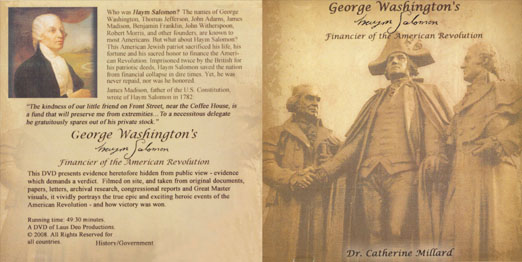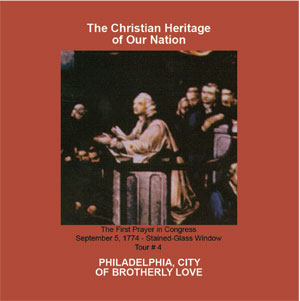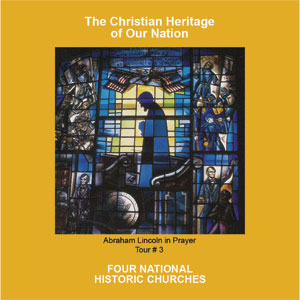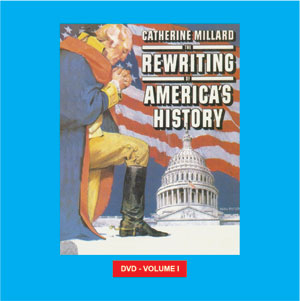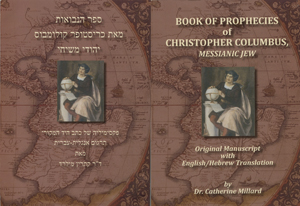During a recent vacation we toured Mount Vernon,
and were given the impression by docents that
George and Martha Washington were waited upon
by slaves – and that hard lives were inflicted upon
them at Mount Vernon. Is this credible?
Recent Mount Vernon reenactment programs, featuring some of the slaves dressed in “colonial” costumes, makes a negative, lasting impression on students, who, according to Pamela Ann Cunningham, founder the Mount Vernon Ladies’ Association in 1848 – should come away with a true impression of Washington’s heroism and accomplishments, as father and founder of this nation.
These 2010-version Slaves’ Quarter Buildings; rewritten markers decrying the plight of Washington’s slaves, and costumed Slaves’ reenactment programs ought to be immediately abolished, as a million or more visitors tour Mount Vernon annually, being indoctrinated with a false account of George and Martha Washington’s lives and conduct at their own home.
George Washington’s Last Will and Testament testifies to the fact that he not only took great care of his slaves, but also freed them – slavery having been a well-established institution, (originally initiated in 1619 by the Crown of England) in the former British American Colonies. Slavery was, in fact, the 28th Clause of the Declaration of Independence, which denounced it as “an execrable commerce,” and “an assemblage of horrors;” this Clause, however – was struck out by Congress prior to being signed, due to the refusal of two southern States to subscribe to it – which would have annulled the “Declaration of Independence of Thirteen United States” in Congress Assembled.
Washington’s Will reads as follows:
“Item. Upon the decease of my wife, it is my Will and desire that all the Slaves which I hold in my own right, shall receive their freedom. – To emancipate them during her life, would, tho’ earnestly wished by me, be attended with such insuperable difficulties on account of their intermixture by marriages with the Dower Negroes, as to excite the most painful sensations, if not disagreeable consequences from the latter, while both descriptions are in the occupancy of the same proprietor; it not being in my power, under the tenure which the Dower Negroes are held, to manumit them. And whereas among those who will receive freedom according to this devise, there may be some, who from old age or bodily infirmities, and others who on account of their infancy, that will be unable to support themselves; it is my Will and desire that all who come under the first & second description, shall be comfortably clothed & fed by my heirs while they live; – and that such of the latter description as have no parents living, or if living are unable, or unwilling to provide for them, shall be bound by the Court until they shall arrive at the age of twenty-five years; – And in cases, where no record can be produced, whereby their ages can be ascertained, the judgment of the Court, upon its own view of the subject, shall be adequate and final. The Negroes thus bound, are (by their Masters or Mistresses) to be taught to read and write; and to be brought up to some useful occupation, agreeably to the Laws of the Commonwealth of Virginia, providing for the support of orphan and other poor children. – and I do hereby expressly forbid the sale, or transportation out of the said Commonwealth, of any Slave I may die possessed of, under any pretense whatsoever. – and I do moreover – most pointedly, and most solemnly enjoin it upon my Executors hereafter named, or the Survivors of them, to see that this clause respecting Slaves, and every part thereof be religiously fulfilled at the epoch at which it is directed to take place; without evasion, neglect or delay, after the crops which may then be on the ground are harvested, particularly as it respects the aged and infirm; – seeing that a regular and permanent fund be established for their support so long as there are subjects requiring it; – not trusting to the uncertain provision to be made by individuals. – And to my Mulatto man William (calling himself William Lee) I give immediate freedom; or if he should prefer it (on the account of the accidents which have befallen him, and which have rendered him incapable of walking or of any active employment) to remain in the situation he now is, it shall be optional in him to do so: In either case however, I allow him an annuity of thirty dollars during his natural life, which shall be independent of the victuals & clothes he has been accustomed to receive, if he chooses the last alternative; but in full with his freedom, if he prefers the first; & this I give him as a testimony of my sense of his attachment to me, and for his faithful services during the Revolutionary War.”1
Washington’s signed Last Will and Testament, dated July 9th, 1790, provides evidence of his concern, and material support of his Slaves – a provision being made for the aged, infirm and infant children unable to care for themselves – enjoining it upon his executors to religiously execute his wishes to “comfortably clothe and feed them during their lifetime,” and that “a regular and permanent fund be established for their support so long as there are subjects requiring it.”
Again, we uncover an agenda to rewrite original documents of American history, through interpretative lectures and programs; and recently changed markers, indoctrinating millions of students with false, derogatory accounts of George and Martha Washington.
To learn more, click here.
_________________________
Bibliography:
1
Last Will and Testament of George Washington, signed and dated July 9th, 1790. Fairfax County Courthouse, Fairfax, Virginia.

